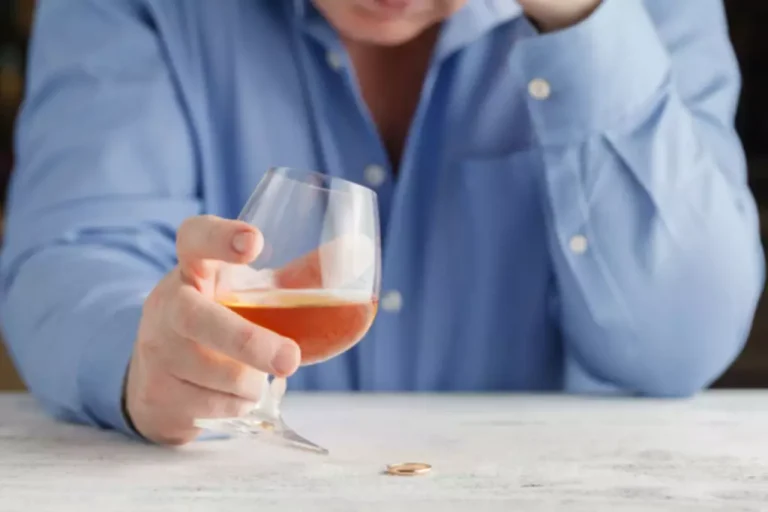
It is a beautiful paradox, that being “powerless” can ultimately empower one to make significant meaningful long-lasting change. The impact of drugs and alcohol on your body over time renders your natural brain functions and mechanisms powerless. To acknowledge the way these substances have impacted your life is to admit that alcohol and drugs have made your life unmanageable and you can’t fix it on your own. By understanding the benefits of embracing powerlessness and incorporating tools and practices into their recovery journey, individuals can navigate the challenges of sobriety with greater ease and clarity. Embracing powerlessness is a transformative process that enables individuals to find freedom and inner peace while building a solid foundation for lasting sobriety. By incorporating these tools and practices into their recovery journey, individuals can develop resilience, find support, and experience a greater sense of freedom and inner peace.
Step Series
Unfortunately, many cannot shatter that illusion until they hit rock bottom and are confronted with undeniable proof that everything is not okay. Only then do they feel examples of powerlessness over alcohol that powerlessness that comes from addiction. To admit powerlessness over alcohol (or drugs) means accepting the fact that you’ve lost control over your substance use.
Powerlessness and Unmanageability

What happens in a group of people admitting powerlessness over addiction is a power in itself. “We admitted we were powerless over alcohol—that our lives had become unmanageable.” Accepting powerlessness requires a shift in mindset, moving away from a place of resistance and denial towards one https://ecosoberhouse.com/ of vulnerability and accountability. It involves acknowledging that addiction is a complex and powerful force that cannot be easily overcome through sheer willpower alone. By recognizing the lack of control over addiction, individuals can begin to explore alternative paths towards recovery.
What is Step 1 in AA?
- By letting go of the need for control and accepting our limitations, we open ourselves up to a range of benefits that contribute to our overall well-being and recovery journey.
- AA is a recovery program for multiracial men and women who are suffering from an alcohol use disorder.
- Now let’s say I come home every Friday night smelling of beer and smoke.
- Constantly attempting to get your life under control when you are living in chaos is fruitless.
- “We admitted we were powerless over alcohol—that our lives had become unmanageable. We came to believe that a power greater than ourselves could restore us to sanity.”
Once you realize that addiction is a disease, you can start to see yourself as someone who is sick, rather than someone who is weak or morally flawed. When someone is struggling with addiction, they may feel like they have no control over their life. This sense of powerlessness can be a major factor in addiction. Going to the hospital was what finally got my attention–I ended up in the dual diagnosis unit of a state hospital in Richmond, Indiana. Hopefully, you recognize if you are powerless over your addiction before it hits this point–but in my case, it took this, and even then my recognizing powerlessness over alcohol came and went. If your substance use has ever put you in the hospital, you have a problem.
Taking the 1st Step Toward Managing Alcoholism
Acknowledging powerlessness over alcohol and drugs can be liberating for many people. It frees you up to focus your time and energy on things that are within your control. Perhaps you are familiar with the words of the Serenity Prayer, which is commonly recited at AA meetings. In our recovery programs for men in Colorado, we work on this step.
Many who struggle with alcoholism have tried to control or moderate their drinking, only to find themselves repeatedly falling into the same destructive patterns. Step One AA emphasizes the futility of attempting to manage something that’s proven uncontrollable. The accountability and encouragement in meetings and therapy break the power of secrecy where addiction thrives. It helps foster accountability and is a profound place of support.
Motivation is the key to change
Alternatively, you can use this entire list as a daily affirmation to support you in your recovery. Constantly attempting to get your life under control when you are living in chaos is fruitless. The addiction has worn away at your self-control and self-discipline. You need to learn those skills anew through the tested work of recovery before you’ll be able to apply them to other areas of your life. Alcoholics Anonymous (AA) operates under a set of 12 steps to achieve daily recovery.

Do You Have to Believe in God for 1st Step AA?

This belief assumes that you have enough power over your addictive behaviors to stop. It denies the reality of all the other unsuccessful attempts you’ve made to stop as a result of major consequences. Our hope is merely to capture the spirit of the fellowships, and to approach people with the language they commonly use to describe the disease of addiction.
- That’s a warning sign that you may have a problem–if you can’t deal with life without the addiction in question.
- This statement has been part of a great discussion on whether or not recovery can come without sobriety.
- Mindfulness and meditation are powerful practices that can assist individuals in developing awareness and acceptance of their powerlessness.
- Another example of powerlessness in sobriety is the need to let go of old habits and patterns that contributed to addiction.
- And since addictive behaviors are the primary way you cope with distress and pain, you’ll return to those in a heartbeat.
- AA support groups are accessible and free, without any age or education requirements.
- Because he is a member of a support group that stresses the importance of anonymity at the public level, he does not use his photograph or his real name on this website.
The First Step toward Addiction Recovery

Our comprehensive approach to recovery, combined with long-term residential treatment and dual diagnosis capabilities, prepares clients to successfully navigate the path to sustained sobriety. Remember, acknowledging unmanageability is a critical first step toward recovery. With the support of dedicated professionals at facilities like Burning Tree Programs and the guiding principles of Alcoholics Anonymous, individuals can overcome addiction and reclaim control of their lives. In essence, in Step One you’re making a conscious choice to recognize out loud you have a problematic relationship with substances. Step one asks you to identify out loud that you have continued to use substances despite this use impacting your life and or the lives of others negatively.
At Spero Recovery, we understand how hard it can be to admit that you are powerless over the effects of drugs and alcohol on your life. It’s not only damaging to your confidence, it can be humiliating. We all want to be considered strong and in charge of ourselves, so admitting powerlessness seems like a huge contradiction to that goal. Admitting powerlessness is what reveals your true strength, and our committed staff is ready to help you find it. We offer peer-led recovery programs that are rooted in the 12-Step program of recovery from Alcoholics Anonymous.









